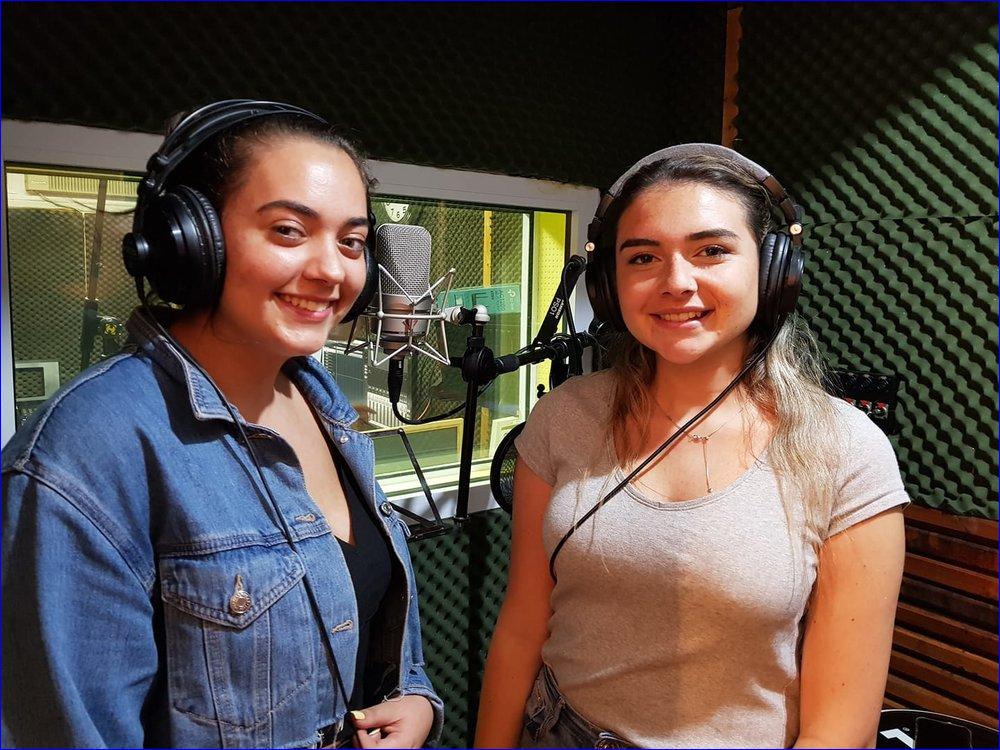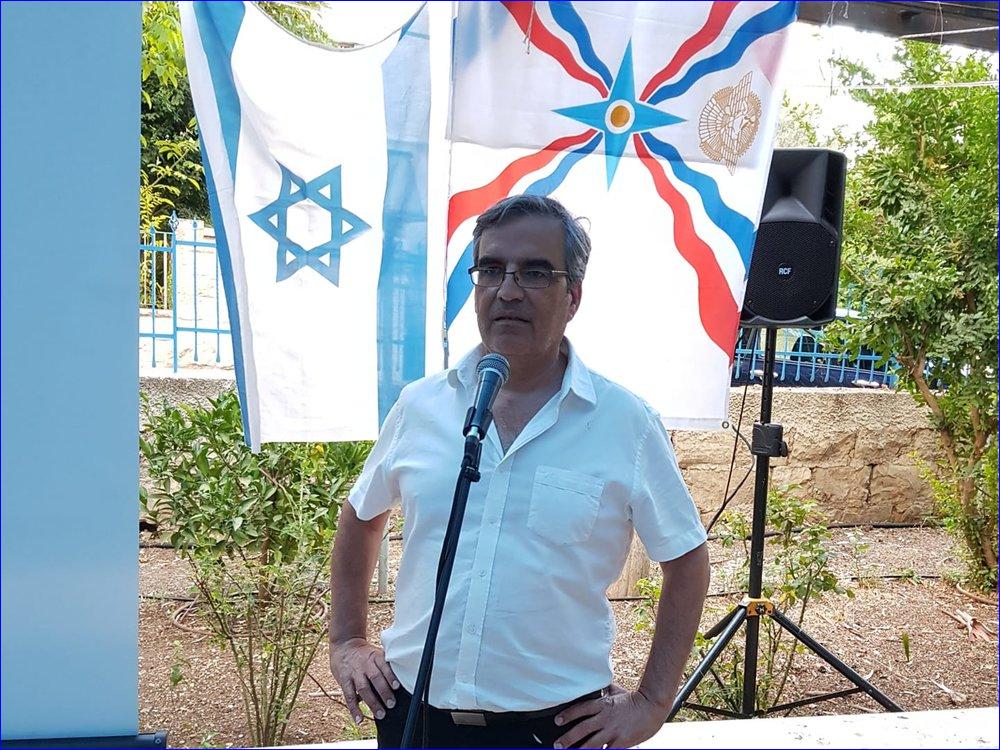


You open the door, and the stranger introduces himself, at which point you realize you've never met him.
He's got a familiar face though. You also start to notice that he walks, talks, and carries himself with a demeanor that appears to be naturally like yours for some reason.
He even looks like you and begins to speak to you in his native language that, coincidentally, sounds nearly identical to your own.
A few minutes into the conversation, the visitor abruptly reveals he is your long-lost relative and knocked on your door to reconnect with you and the rest of his immediate family. You react, first, by trying to wrap your head around the fact that you never even knew this person existed a few minutes ago.
Neurons fire from every corner of your mind, and a trillion questions rush to the front of your head until you suddenly realize you both share the same DNA.
Your emotions begin to escalate; they are heightened, mixed, and will probably shock your conscience. Imagine the intensity of such a feeling.
Now multiply this intensity by about half a million--and brace yourself--because that's how many Aramaic-speaking Jews exist in the world today.
After finding a group of Assyrian Jews on Facebook, I knocked on their metaphorical door and introduced myself. Even though I knew no one, I immediately recognized several familiar faces.
One of those faces belongs to Dr. Yaacov Maoz who, I later learned, is on a mission to revive the Aramaic language worldwide.
We spoke in our native tongue for a few minutes and abruptly shifted the conversation to discuss historical and religious connections, along with our common lineage, beginning with Abraham.
Drawing a Connection
Multiple generations of Abraham's descendants traveled from Canaan to Aram-Naharaim when they wanted to get married, according to the Old Testament.

As a result, Dr. Maoz describes Abraham as an Aramaic-speaking son of Assyria born in "Ur, Land of the Chaldeans" and eventually became the father of the Jewish people when he settled in Aram-Naharaim for many years.
Dr. Maoz's father is from Duhok. His mother is from the northern Iraqi village of Zakho, which consisted of a robust Jewish population until 1951 when virtually all of them migrated to Israel in Operations Nehemiah and Ezra.
He self-identifies as a descendant of Jewish migrants of ancient Assyria or just "Jewish Assyrian."
The Jews of Zakho speak a dialect of Sureth (modern Aramaic) that is nearly identical to our own. It is called Lishana Deni, according to Dr. Yaacov Maoz.
Lishana Deni translates into "Our Language" or quite literally "Our Tongue" and, according to Dr. Maoz, is one of three main "identity components" of this group of people. The other two are "religion and nationality," he said.
"As the world's only speakers of Aramaic," Dr. Maoz intends to preserve the language Jesus spoke by reconnecting the dots between the overlapping identities of the Jews and Christians of Assyria.
More specifically, his mission begins with the formation of a digital collection of shared historical and religious texts, forming a vital cultural bridge between past and present.
Historical Connections
Around 800 B.C., the Prophet Jonah was swallowed up by a giant fish and reluctantly taken to the Assyrian city of Nineveh. He reached his destination in 72 hours, where he found the ancient Ninevites.
Jonah announced to the Ninevites that there was only one way to avoid total destruction of their nation and all of its inhabitants. He said they must repent to what they perceived as the God of the Jews.
Assyrian King Ashur-dan III, who was desperate to end a disastrous plague and constant rebellions in Nineveh, took Jonah's warning seriously.
The rest of the inhabitants of this land, our pre-Christian ancestors, reacted by abstaining from eating a variety of dairy and meat foods for the same length of time Jonah spent traveling inside of the whale--72 hours--in an ancient ritual called ܒܥܘܬܐ ܕܢܝܢܘܝ̈ܐ, which phonetically translates into "Baoutha'd Ninwaya" or Petition of the Ninevites.
The ancient people who practiced this fast are the forefathers of today's Baoutha-practicing Chaldeans, Assyrians, Syriacs, Maronites, and Arameans.
Marutha of Tikrit enforced it as a way to unite all eastern churches when another plague broke out in the ancient homeland right before his death in 649 A.D., according to a bulletin posted on St. Thomas's website.
This story is worth mentioning because it illustrates a definitive connection between the religious holiday of Baoutha and the Jewish holiday of Yom Kippur, according to Dr. Maoz.
Part of Yom Kippur is dedicated to reading the Book of Jonah, he said. What's more, the Babylonian Talmud was written in Aramaic, and it is the foundation for Jewish law and theology. However, generations of sages who studied the Talmud never heard of the Aramaic language, according to Dr. Maoz.
This lack of familiarity with Aramaic in a Talmudic context is a problem for Jews because, according to Dr. Maoz, they are responsible for "safeguarding this asset within us." The foundation of the Nation of Israel rests squarely on the Aramaic language, from which Hebrew descended, according to Dr. Maoz.
Some of the most "dramatic moments" in Israeli prayer originated with Aramaic, "such as the Qadish," he said.
Assyrian Jews still identify as Assyrian, presumably because their national identity wasn't tampered with by Eastern and Western Churches during many centuries of religious schisms.
These schisms are the same ones that divided Chaldeans, Assyrians, Syriacs, Maronites, and Arameans into different religious denominations and national identities.
Inadvertently or otherwise, modern-day adherents of a divided church ironically self-identify under the banner of a single kingdom, Nineveh, when they practice Baoutha'd Nineveh.
One encouraging sign is the almost universal intrigue and willingness to engage with our shared history and ancestry, which helps us define and defend a set of values we want to live by together.
The Assyrian Embassy in Jerusalem
Dr. Maoz intends to fulfill his role with a strategy that integrates our Aramaic language into all levels of Israeli curriculum, but that's only the beginning. Another objective of Dr. Maoz is to launch The Assyrian Embassy in Jerusalem.
"The good relations between the world's Assyrian communities and Israel deserve to be expressed both physically and symbolically by the establishment of an Assyrian embassy in Jerusalem," Dr. Maoz declared.
He described it as a place that will "provide a home base for the cultivation of creative expression in Assyrian Aramaic, and function as a meeting place for Israeli and Assyrian creative artists that will draw Assyrian pilgrims visiting the holy sites in the Land of Israel."
To sum it up, Dr. Maoz said the Assyrian Embassy in Jerusalem would "embody Israeli society's declaration of support of the Assyrian nation, its cultural heritage and its national aspirations."
A Massive Highway Built Across the Entire Middle East
The entirety of Dr. Maoz's plan will be released in a 20-page plan when he visits Toronto in November.
Most notably, it ends with a quote from an unfulfilled prophecy from the Book of Isaiah 19:23-25:
23 In that day there will be a highway from Egypt to Assyria. The Assyrians will go to Egypt and the Egyptians to Assyria. The Egyptians and Assyrians will worship together.
24 In that day Israel will be the third, along with Egypt and Assyria, a blessing on the Earth.
25 The Lord Almighty will bless them, saying, "Blessed be Egypt my people, Assyria my handiwork, and Israel my inheritance."
Many, including Dr. Maoz, believe the prophecy above amounts to the revival of our ancient kingdom in a land that most people today call Iraq.

or register to post a comment.